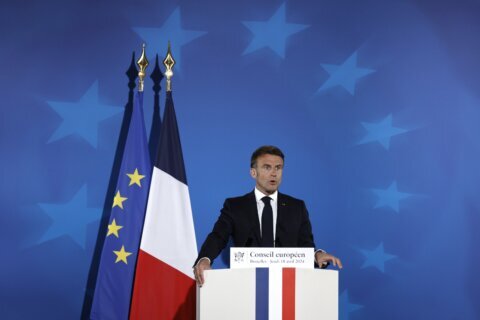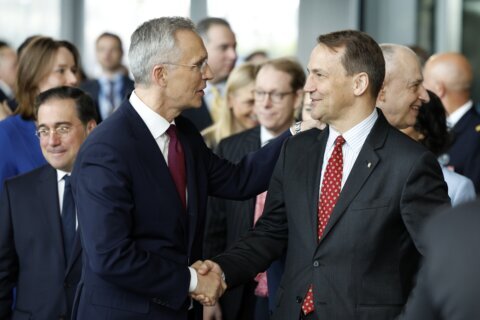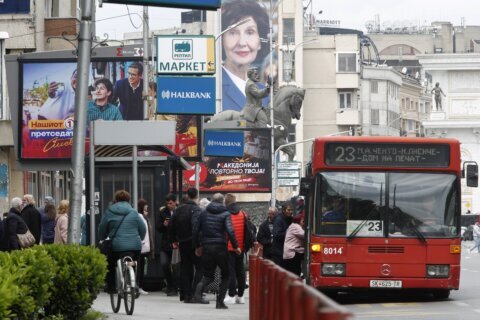SARAJEVO, Bosnia-Herzegovina (AP) — The Russian embassy in Bosnia on Wednesday criticized the suspension of a Bosnian Serb property law and warned of potential destabilization in the tense Balkan country unless the decision by the top international official is revoked.
The embassy in a statement carried by local media reiterated that Moscow does not recognize German diplomat Christian Schmidt as the head of the U.N. Office of the High Representative in Bosnia and considers his moves illegitimate.
The Russian comments highlight a dispute with the West over policies in the volatile Balkans where Moscow has sought to increase its historic sway. With war raging in Ukraine, there have been fears of tensions soaring in the Balkans as well.
Schmidt on Tuesday suspended the law that the semi-autonomous Bosnian Serb region passed in February, and which declares that the property used by local public authorities belongs to the Republika Srpska entity.
The law is seen as part of the Serb drive in Bosnia to gain as much independence as possible. Bosnia also has a Bosniak-Croat entity, along with joint, central institutions designed to keep the country together after its 1992-95 war.
Schmidt said in announcing his decision that only the Bosnian state can regulate property issues and urged dialogue within Bosnia to resolve the dispute. Bosnian Serb leaders have rejected the decision.
The U.S. embassy has said that the international community was “left with no choice but to act” after Bosnian Serb leaders refused to “engage constructively” in solving the problem and took “unconstitutional, unilateral action” instead.
Russia has supported the Bosnian Serb leader Milorad Dodik, who has faced U.S. and British sanctions for undermining the 1995 U.S. peace agreement that ended the war after more than 100,000 people died and millions were left homeless.
In its statement, the Russian embassy in Bosnia warned against Schmidt’s actions and the sanctions, saying that “all responsibility for possible destabilization in Bosnia-Herzegovina will lie on the representatives of the international community.”
The war erupted because Serbs in Bosnia wanted to create their own state and join neighboring Serbia. Dodik, who is a member of the multi-ethnic Bosnian presidency, has repeatedly called for the Serb separation from the rest of Bosnia.
The High Representative in Bosnia has the authority to suspend laws and replace officials who are viewed as violating the U.S.-brokered peace deal. The agreement also established a multi-national council overseeing the peace implementation where Russia routinely opposes Western moves.
Copyright © 2024 The Associated Press. All rights reserved. This material may not be published, broadcast, written or redistributed.







